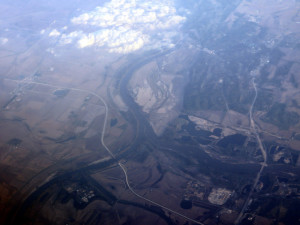
Credit: Flickr/ Ken Lund
Argonne National Laboratory has released a study funded by the US Department of Energy’s Bioenergy Technologies Office (BETO) that examines the potential effects of future biofuel production on freshwater resources in the Missouri River Basin, a region that could play a central role in the production of cellulosic biomass like switchgrass, a perennial energy crop.
This study utilised the soil and water assessment tool, a robust modelling tool developed by the US Department of Agriculture’s Agricultural Research Service, to examine how water quality, nutrient and sediment loading, and flow would respond to region-specific increases in feedstock production estimated by BETO’s billion ton update.
The study identified four areas that could be associated with increased feedstock production, and demonstrated that increasing the amount of switchgrass acreage in these hot spots could significantly improve water quality.


